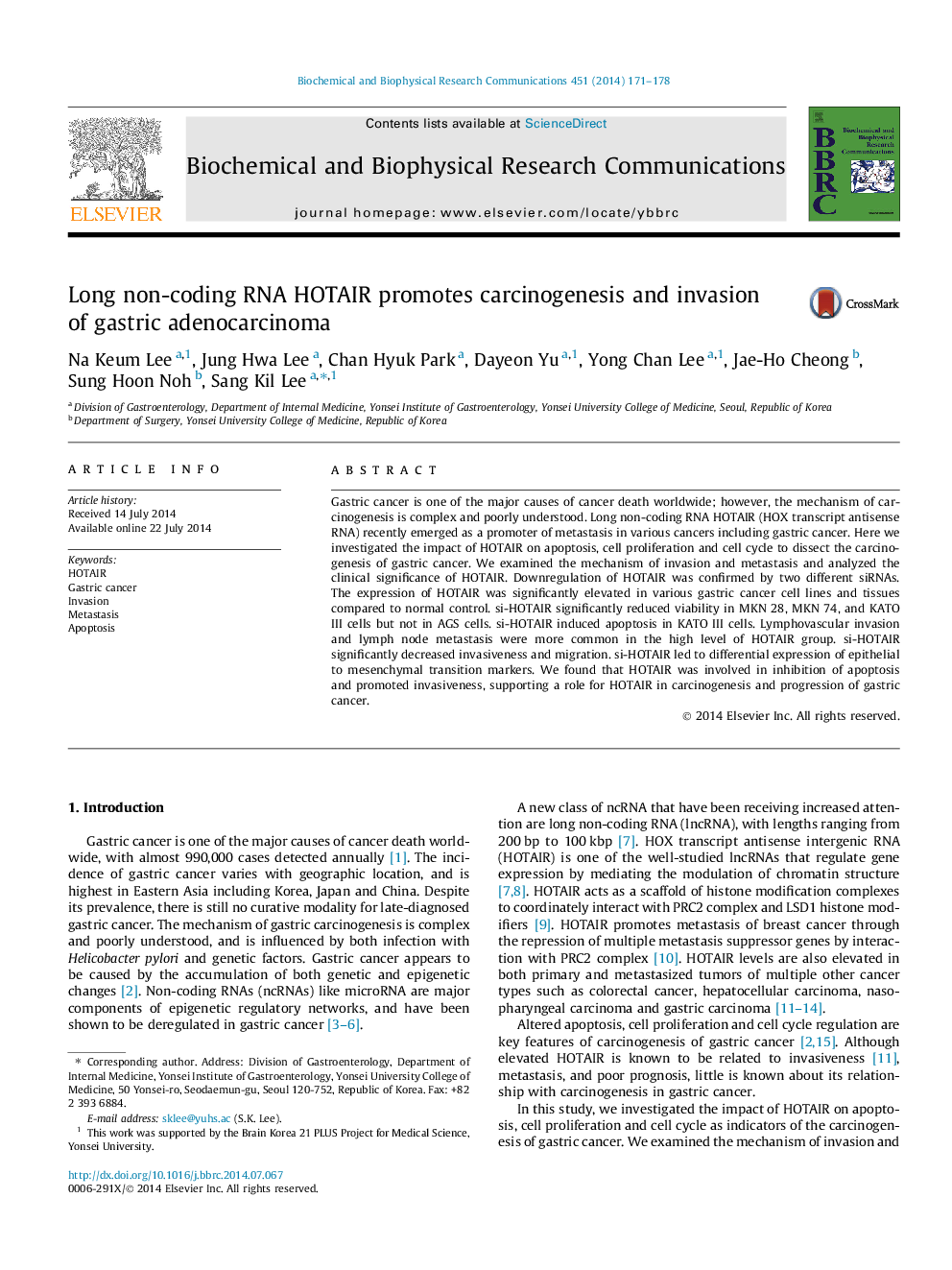| Article ID | Journal | Published Year | Pages | File Type |
|---|---|---|---|---|
| 10754069 | Biochemical and Biophysical Research Communications | 2014 | 8 Pages |
Abstract
Gastric cancer is one of the major causes of cancer death worldwide; however, the mechanism of carcinogenesis is complex and poorly understood. Long non-coding RNA HOTAIR (HOX transcript antisense RNA) recently emerged as a promoter of metastasis in various cancers including gastric cancer. Here we investigated the impact of HOTAIR on apoptosis, cell proliferation and cell cycle to dissect the carcinogenesis of gastric cancer. We examined the mechanism of invasion and metastasis and analyzed the clinical significance of HOTAIR. Downregulation of HOTAIR was confirmed by two different siRNAs. The expression of HOTAIR was significantly elevated in various gastric cancer cell lines and tissues compared to normal control. si-HOTAIR significantly reduced viability in MKN 28, MKN 74, and KATO III cells but not in AGS cells. si-HOTAIR induced apoptosis in KATO III cells. Lymphovascular invasion and lymph node metastasis were more common in the high level of HOTAIR group. si-HOTAIR significantly decreased invasiveness and migration. si-HOTAIR led to differential expression of epithelial to mesenchymal transition markers. We found that HOTAIR was involved in inhibition of apoptosis and promoted invasiveness, supporting a role for HOTAIR in carcinogenesis and progression of gastric cancer.
Related Topics
Life Sciences
Biochemistry, Genetics and Molecular Biology
Biochemistry
Authors
Na Keum Lee, Jung Hwa Lee, Chan Hyuk Park, Dayeon Yu, Yong Chan Lee, Jae-Ho Cheong, Sung Hoon Noh, Sang Kil Lee,
